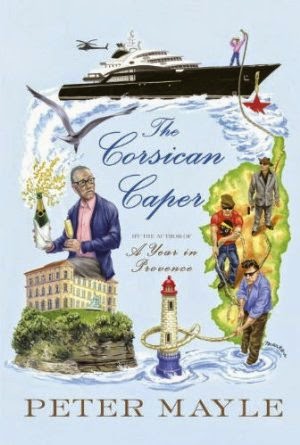Joël Dicker: The Truth About the Harry Quebert Affair
0.5 stars
I only have two problems with this book: (1) the ludicrous and lurid plot, and (2) the stunningly amateurish writing. It was increasingly painful, but I read every bit of the book, mostly because I just couldn't believe this could be the same book that has been such a huge best-seller abroad. I figured it had to transform itself into something great, but if anything, it just got worse with each passing page.
I'll keep the plot summary brief, since you can read that just about anywhere. The protagonist, Marcus Goldman, is a young writer who hit it big with his first novel and is now hopelessly blocked. Under tremendous pressure from his agent and rapacious publisher, he flees to the seaside town of Somerset, New Hampshire, to get help from his college mentor, the literary lion, Harry Quebert.
Shortly after Marcus's visit, Harry is arrested for the murder of a teenage girl, Nola Kellergan, who disappeared over 30 years later and whose body has just been found buried under Harry's lawn, along with the original manuscript of Harry's most famous novel, The Origin of Evil. Marcus decides he must investigate to clear Harry, and submits to his publisher's pressure to write a book about what is being called the Harry Quebert Affair.
First of all, it's downright creepy that the then 34-year-old Harry had a love affair with a 15-year-old girl. And we get to read a lot about it and other similar events. But at least there is a little comedy value in that reading, with deathless prose like this:
"As soon as he saw her, he felt his heart explode. He missed her so much. As soon as she saw him, she felt her heart explode. She had to speak to him."
Unfortunately, those exploding hearts were not fatal. Harry and Nola continue to play their parts in Somerset, a burg whose citizens behave like cartoon versions of that old-time celebration of small-town sin, Peyton Place. There are shrewish wives, henpecked husbands, tongue-tied swains, gossipy diner denizens, a hideously-scarred chauffeur with a speech impediment (and, yes, his dialog is presented with the impediment); but most of all, there are people with deep dark secrets.
I realize the prior paragraph might make the book sound kind of fun, in a campy soap-opera-ish way. But it isn't. It's just so ridiculous, clichéd and repetitive. A good couple of hundred pages could have been edited out of this thing. (It would still be bad, but at least there'd be less of it.) The author, Joël Dicker, really needed a firm editor to take him in hand, and especially to rein in his love of hyperbole (everything is the best or most or greatest), his constant explaining rather than showing, and embarrassing lavishing of love on authors. We get to read a lot about Marcus and Harry, because they are writers, and writers are extraordinary, as we are told over and over. I never figured out what made Marcus and Harry so extraordinary, though. They both seemed like self-absorbed bores to me.
At last, in the final one-third or so of the book, we learn what happened. Or do we? Over and over, the mystery appears to reach a resolution, but then we find out that the resolution was wrong. It was like that terrible movie Clue, where they just keep changing the ending, but each ending presented is equally silly. Dicker pulls a few other rabbits out of his hat along the way, but they're about as impressive as nine-year-old learning magic tricks.
Before I posted this review, I decided to try to find out why some people thought this was a great book. I found a couple of newspaper reviewers who talked about what a terrific satire this is of the publishing industry and how interesting it is as a piece of metafiction--because it's a writer (Joël Dicker) writing about a writer (Marcus Goldman) writing about a writer (Harry Quebert). To me, the real satire of publishing is that this joke of a novel was published at all. And as for metafiction, well, no matter how "meta" this might be, that bit of cleverness can't elevate the terrible writing and plotting.







 Oh well, I'm one that loved it. I thought Myfanwy was interesting, and rather quick witted in the way she nicked onto what she had to know. Of course the long journal she left herself was a great touch I thought.
Oh well, I'm one that loved it. I thought Myfanwy was interesting, and rather quick witted in the way she nicked onto what she had to know. Of course the long journal she left herself was a great touch I thought.